牛津版必修1 unit 3 especially for you! grammar课件
文档属性
| 名称 | 牛津版必修1 unit 3 especially for you! grammar课件 |
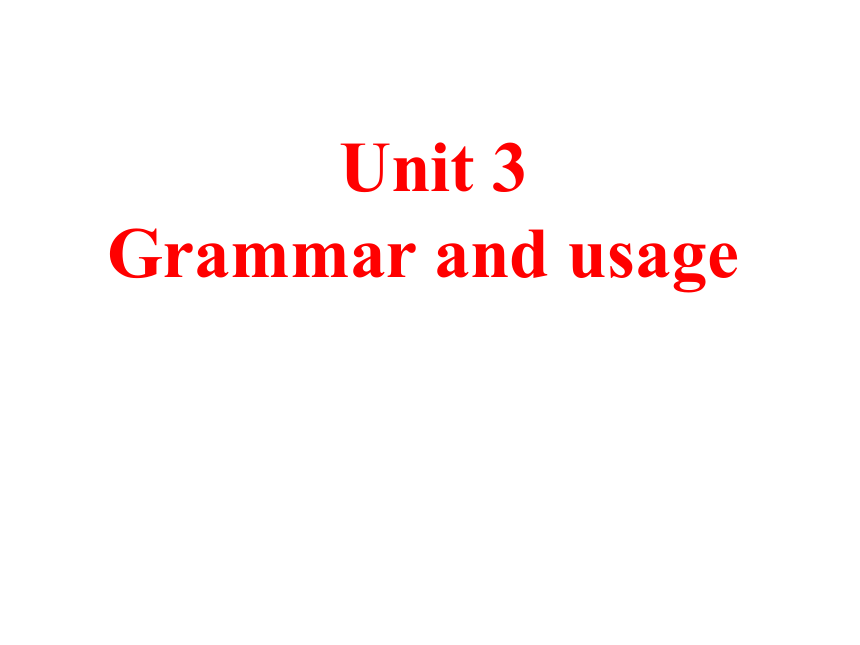
|
|
| 格式 | rar | ||
| 文件大小 | 121.2KB | ||
| 资源类型 | 教案 | ||
| 版本资源 | 牛津译林版 | ||
| 科目 | 英语 | ||
| 更新时间 | 2011-08-01 00:00:00 | ||
图片预览

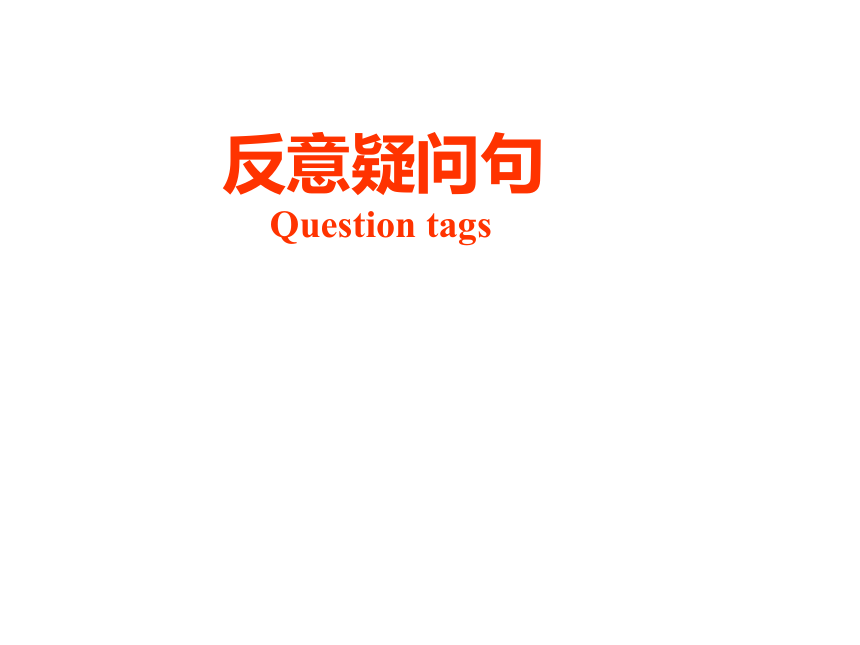
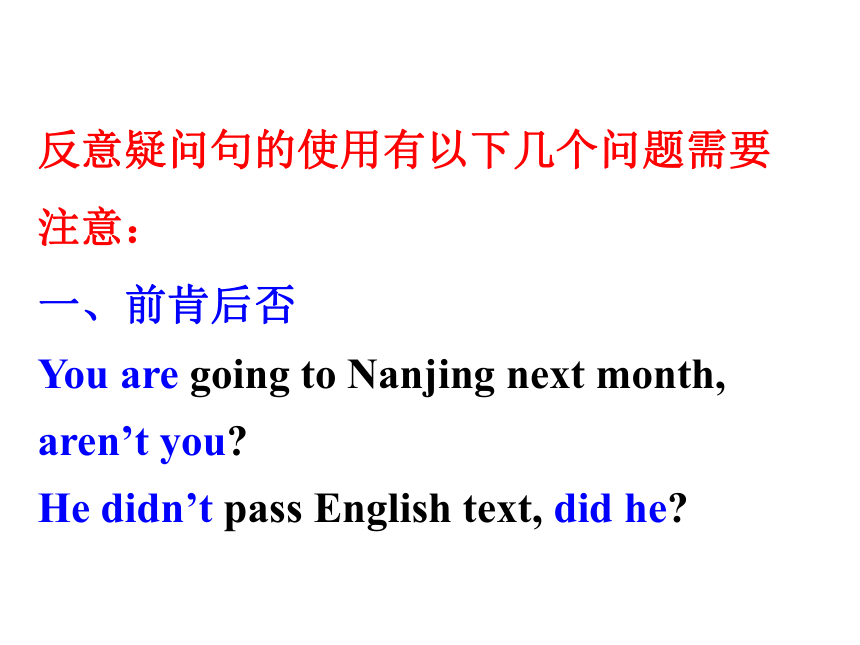
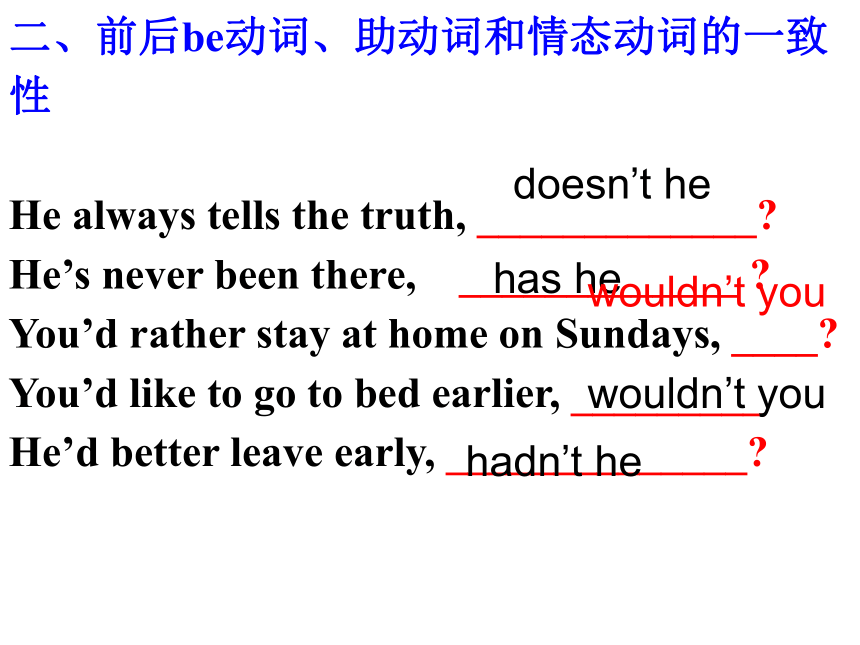
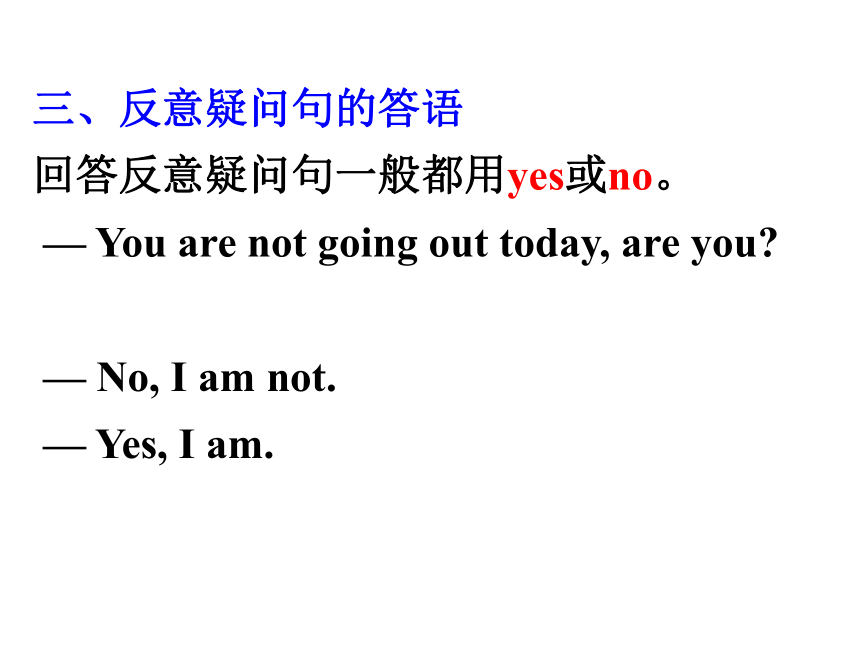
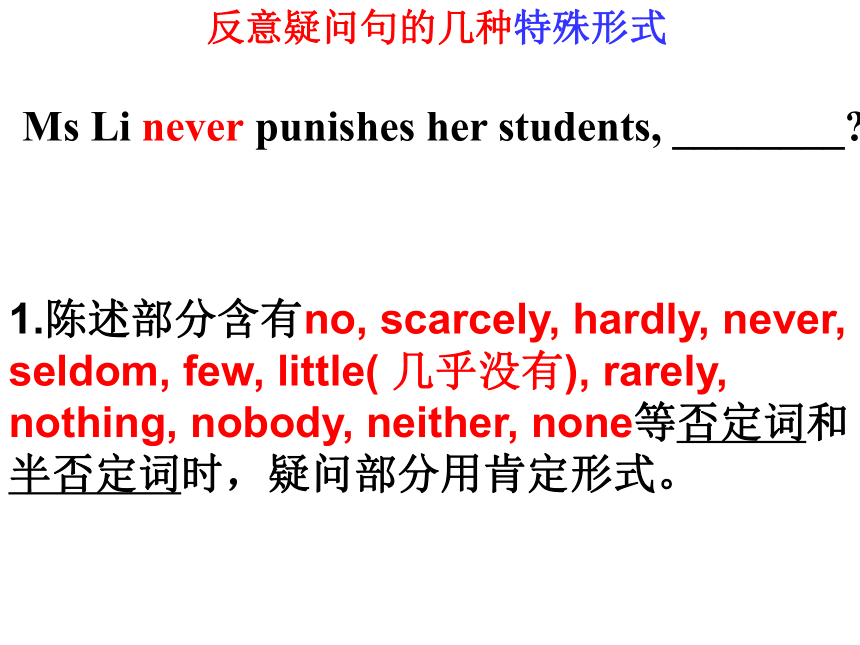
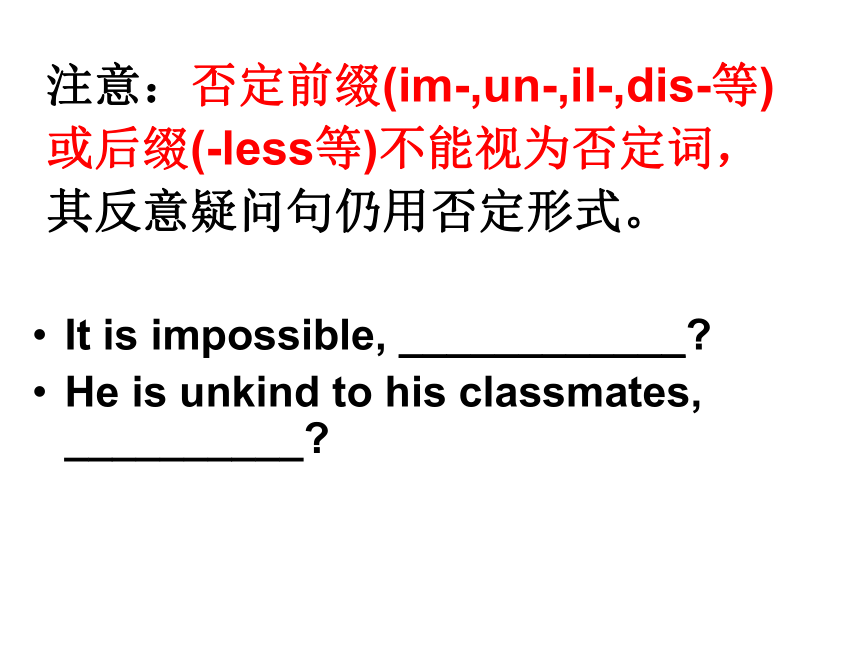
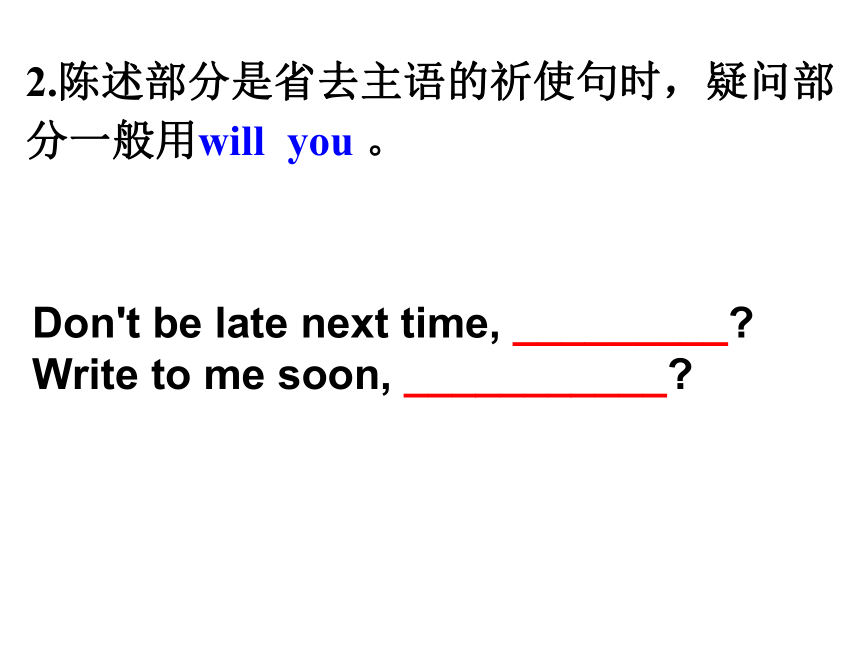
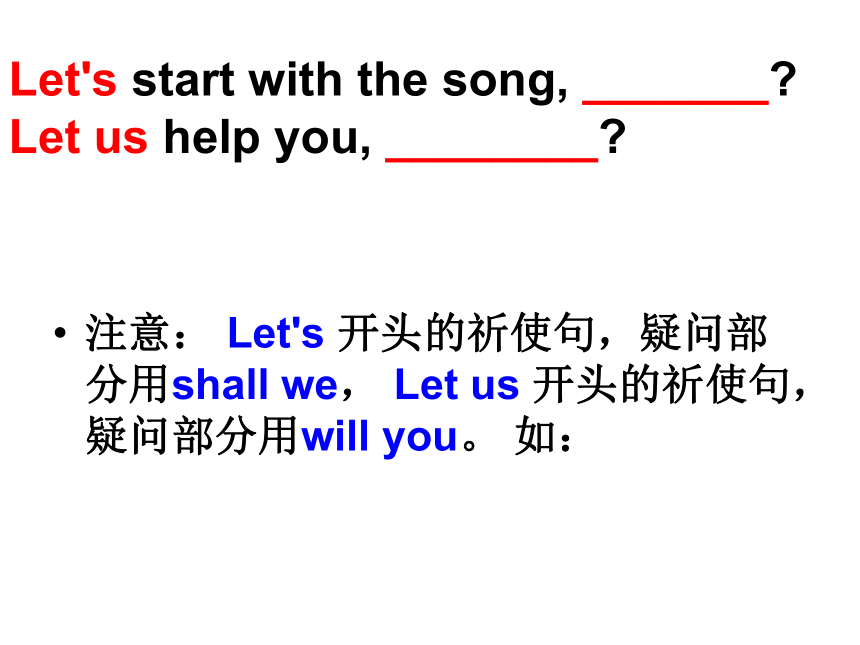
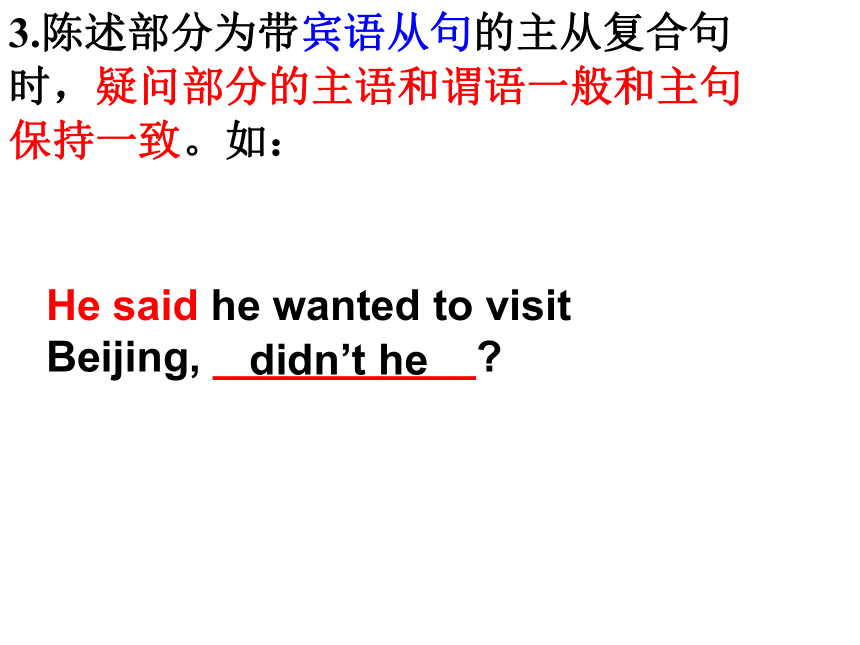
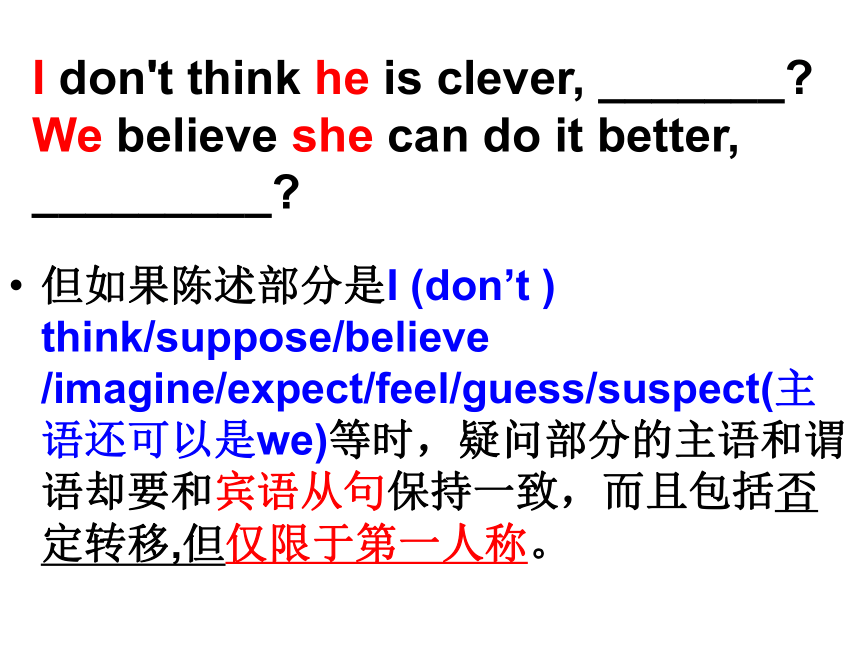
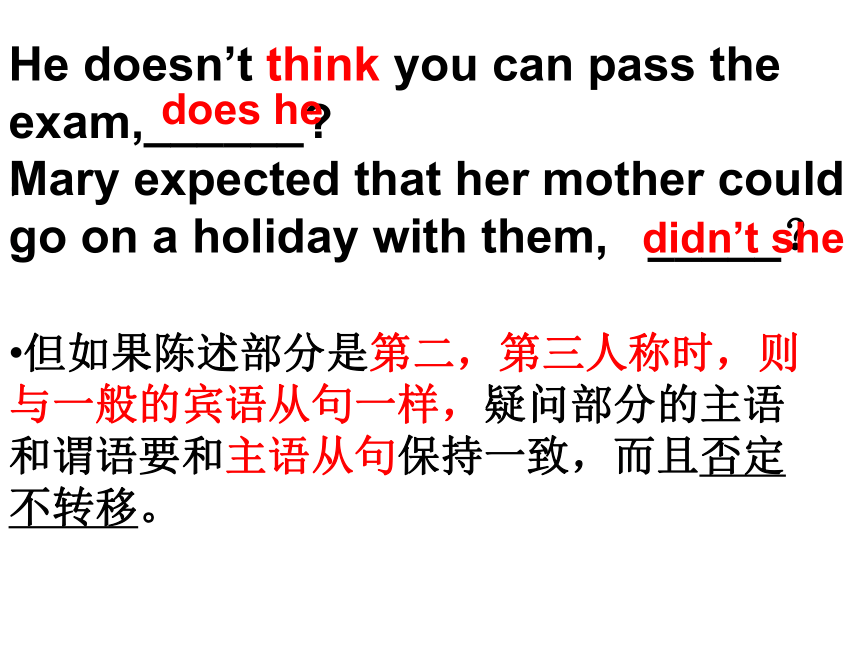
文档简介
(共34张PPT)
Unit 3
Grammar and usage
反意疑问句
Question tags
反意疑问句的使用有以下几个问题需要注意:
一、前肯后否
You are going to Nanjing next month, aren’t you
He didn’t pass English text, did he
二、前后be动词、助动词和情态动词的一致性
He always tells the truth, _____________
He’s never been there, _____________
You’d rather stay at home on Sundays, ____
You’d like to go to bed earlier, _________
He’d better leave early, ______________
doesn’t he
has he
wouldn’t you
wouldn’t you
hadn’t he
三、反意疑问句的答语
回答反意疑问句一般都用yes或no。
— You are not going out today, are you
— No, I am not.
— Yes, I am.
反意疑问句的几种特殊形式
Ms Li never punishes her students, ________
1.陈述部分含有no, scarcely, hardly, never, seldom, few, little( 几乎没有), rarely, nothing, nobody, neither, none等否定词和半否定词时,疑问部分用肯定形式。
It is impossible, ____________
He is unkind to his classmates, __________
注意:否定前缀(im-,un-,il-,dis-等)或后缀(-less等)不能视为否定词,其反意疑问句仍用否定形式。
2.陈述部分是省去主语的祈使句时,疑问部分一般用will you 。
Don't be late next time, _________
Write to me soon, ___________
Let's start with the song, _______
Let us help you, ________
注意: Let's 开头的祈使句,疑问部分用shall we, Let us 开头的祈使句,疑问部分用will you。 如:
3.陈述部分为带宾语从句的主从复合句时,疑问部分的主语和谓语一般和主句保持一致。如:
He said he wanted to visit Beijing, ___________
didn’t he
I don't think he is clever, _______
We believe she can do it better, _________
但如果陈述部分是I (don’t ) think/suppose/believe /imagine/expect/feel/guess/suspect(主语还可以是we)等时,疑问部分的主语和谓语却要和宾语从句保持一致,而且包括否定转移,但仅限于第一人称。
He doesn’t think you can pass the exam,______
Mary expected that her mother could go on a holiday with them, _____?
,
但如果陈述部分是第二,第三人称时,则与一般的宾语从句一样,疑问部分的主语和谓语要和主语从句保持一致,而且否定不转移。
does he
didn’t she
1. I told him that you had finished the work, _______
2. You think he comes from Japan, _________
3. He doesn’t guess you are right, _______
4. We don’t imagine that he has lied to us, _____
5. I don’t suppose she will help him,_______
6. I don’t think you are wrong,_______
has he
does he
don’t you
didn’t I
Practice
will she
are you
陈述部分的谓语是wish时,如主语是I, we时,疑问部分要用may +主语,而且前后都要用肯定形式。如:
I wish to go to Beijing, ______
I wish to go home now, ______
may I
He used to be a bad boy, _____
There used to be a big building here,_______
陈述部分的谓语是used to时,疑问部分用didn't+主语或 usedn't +主语。如:
used’t/didn’t he
used’t/didn’t there
6.陈述部分是I’m...句型时,疑问部分要用 aren’t I。如:
I’m an English teacher, _______
7.陈述部分的主语是指示代词this, that或不定代词(everything, nothing, anything, something等),不定式(to do),动名词(doing)或从句时,疑问部分主语用it。如:
That he has come back from Japan is true, ________
Everything is ready, ________
To see is to believe, ________
Looking good is important to women ,_______
What you said is true,_______
8.陈述部分主语是不定代词everybody, anyone, somebody, nobody, no one, everyone等,疑问部分主语常用复数they,有时也用单数he。如:
Everyone knows the answer, ________
Nobody knows about it___________
No one would object, ________
9.当陈述部分有must时,若must作“必须”讲时,其反意疑问部分用needn’t;当含有mustn’t(不允许,禁止)时,其反意疑问部分用must;当must表示推测,作“一定,准是” 讲时,反意疑问部分的动词形式根据must后边的动词形式确定。
needn’t
must
aren’t
You must go now, you
You mustn’t smoke here, you
You must be hungry now, you
You must have watched that football match last night, didn’t you
He must have got scholarship last term, didn’t he
He must have got scholarship, hasn’t he
注意:
若陈述部分中must have done表示对过去某一时间情况的推测,疑问部分用didn’t;
若must have done表示对现在完成动作或存在状态的推测,疑问部分用haven’t/hasn’t 。
You must have watched that football match last night, ________ He must have got scholarship last term, ____ He must have got scholarship, ______
10.dare, need作情态动词时用dare,need;做实义动词用do,does
He dare not try it again, _________
He dares to try it again, __________
You needn’t work so hard,________
You don’t need to work hard, _______
dare he
doesn’t he
need you
do you
11. Ought to 附加疑问句可用ought,也可用should
The child ought to be pinished, _________
oughtn’t/shouldn’t he
12.Have表拥有时,用have/do;不表示拥有时用do; have to常用do,也可用have.
He has a computer, ________________
He has to get up early, _____________
hasn’t/doesn’t he
doesn’t he
Practice Ⅰ
1. I’m late, ______
2. I think everyone will be here, ________
3. You’d play music rather than watch TV, ______
4. I don’t think John went back home early last night, __________
5. He’s a good teacher, _______
6. He’d written to you before you phoned, ________
7. Let’s go to the gym after school, _________
aren’t I
won’t they/he
wouldn’t you
isn’t he
did he
hadn’t he
shall we
Come here, _________________
Let us start with the song, ___________
I wish to go to Beijing, _________
You'd better go there now, __________
Everything is ready, ___________
He is unkind to his classmates, _________
will you / won’t you
will you
may I
hadn’t you
isn’t it
isn’t he
1. ---Why does she always ask you for help
---There is no one else she can turn to, ________ (2005, 北京卷)
A. is there B. is it
C. can she D. does she
2. There was a loud scream from the backstage immediately after the concert ended ,_____ (2005, 上海卷)
A. wasn’t there B. was there
C. didn’t it D. did it
A
Practice Ⅱ
A
3. There is no light in the dormitory. They must have gone to the lecture, ________ (2004上海春考)
A. didn’t they B. don’t they
C. mustn’t they D. haven’t they
4. Bill’s aim is to inform the viewers that cigarette advertising on TV is illegal, ______
A. isn’t it B. is it
C. isn’t he D. is he
D
A
5. Everyone needs to be questioned before entering the hall, ______
A. needn’t he B. needn’t they
C. don’t they D. isn’t he
6. Don’t have the light burning, _____
A. have you B. do you
C. will you D. shall we
C
C
7. It’s the first time that she has been here, ____
A. hasn’t she B. isn’t she
C. isn’t it D. hasn’t it
8. Nothing that can be done is important, _____ A. can’t they B. isn’t it
C. can it D. is it
C
D
9. All of us seldom went to the cinema at that time, ______ A. didn’t they B. did we
C. didn’t we D. did all
10. They must be waiting at the gate, ______
A. mustn’t they B. aren’t they
C. isn’t it D. needn’t they
B
B
11. There used to be a temple on the hill, _____ A. wasn’t it B. usedn’t there
C. wasn’t there D. didn’t it
12. Li Feng’s unhappy at the news, ______ A. isn’t he B. hasn’t he
C. does he D. is he
A
B
13. I don’t think they’d rather stay in, ______ A. do I B. hadn’t they
C. would they D. wouldn’t they
14. Since you won’t go, let Tom go, ______ A. won’t he B. doesn’t he
C. will you D. shall he
C
C
Homework
Review what we have learned.
Finish the exercise in the text book.
Unit 3
Grammar and usage
反意疑问句
Question tags
反意疑问句的使用有以下几个问题需要注意:
一、前肯后否
You are going to Nanjing next month, aren’t you
He didn’t pass English text, did he
二、前后be动词、助动词和情态动词的一致性
He always tells the truth, _____________
He’s never been there, _____________
You’d rather stay at home on Sundays, ____
You’d like to go to bed earlier, _________
He’d better leave early, ______________
doesn’t he
has he
wouldn’t you
wouldn’t you
hadn’t he
三、反意疑问句的答语
回答反意疑问句一般都用yes或no。
— You are not going out today, are you
— No, I am not.
— Yes, I am.
反意疑问句的几种特殊形式
Ms Li never punishes her students, ________
1.陈述部分含有no, scarcely, hardly, never, seldom, few, little( 几乎没有), rarely, nothing, nobody, neither, none等否定词和半否定词时,疑问部分用肯定形式。
It is impossible, ____________
He is unkind to his classmates, __________
注意:否定前缀(im-,un-,il-,dis-等)或后缀(-less等)不能视为否定词,其反意疑问句仍用否定形式。
2.陈述部分是省去主语的祈使句时,疑问部分一般用will you 。
Don't be late next time, _________
Write to me soon, ___________
Let's start with the song, _______
Let us help you, ________
注意: Let's 开头的祈使句,疑问部分用shall we, Let us 开头的祈使句,疑问部分用will you。 如:
3.陈述部分为带宾语从句的主从复合句时,疑问部分的主语和谓语一般和主句保持一致。如:
He said he wanted to visit Beijing, ___________
didn’t he
I don't think he is clever, _______
We believe she can do it better, _________
但如果陈述部分是I (don’t ) think/suppose/believe /imagine/expect/feel/guess/suspect(主语还可以是we)等时,疑问部分的主语和谓语却要和宾语从句保持一致,而且包括否定转移,但仅限于第一人称。
He doesn’t think you can pass the exam,______
Mary expected that her mother could go on a holiday with them, _____?
,
但如果陈述部分是第二,第三人称时,则与一般的宾语从句一样,疑问部分的主语和谓语要和主语从句保持一致,而且否定不转移。
does he
didn’t she
1. I told him that you had finished the work, _______
2. You think he comes from Japan, _________
3. He doesn’t guess you are right, _______
4. We don’t imagine that he has lied to us, _____
5. I don’t suppose she will help him,_______
6. I don’t think you are wrong,_______
has he
does he
don’t you
didn’t I
Practice
will she
are you
陈述部分的谓语是wish时,如主语是I, we时,疑问部分要用may +主语,而且前后都要用肯定形式。如:
I wish to go to Beijing, ______
I wish to go home now, ______
may I
He used to be a bad boy, _____
There used to be a big building here,_______
陈述部分的谓语是used to时,疑问部分用didn't+主语或 usedn't +主语。如:
used’t/didn’t he
used’t/didn’t there
6.陈述部分是I’m...句型时,疑问部分要用 aren’t I。如:
I’m an English teacher, _______
7.陈述部分的主语是指示代词this, that或不定代词(everything, nothing, anything, something等),不定式(to do),动名词(doing)或从句时,疑问部分主语用it。如:
That he has come back from Japan is true, ________
Everything is ready, ________
To see is to believe, ________
Looking good is important to women ,_______
What you said is true,_______
8.陈述部分主语是不定代词everybody, anyone, somebody, nobody, no one, everyone等,疑问部分主语常用复数they,有时也用单数he。如:
Everyone knows the answer, ________
Nobody knows about it___________
No one would object, ________
9.当陈述部分有must时,若must作“必须”讲时,其反意疑问部分用needn’t;当含有mustn’t(不允许,禁止)时,其反意疑问部分用must;当must表示推测,作“一定,准是” 讲时,反意疑问部分的动词形式根据must后边的动词形式确定。
needn’t
must
aren’t
You must go now, you
You mustn’t smoke here, you
You must be hungry now, you
You must have watched that football match last night, didn’t you
He must have got scholarship last term, didn’t he
He must have got scholarship, hasn’t he
注意:
若陈述部分中must have done表示对过去某一时间情况的推测,疑问部分用didn’t;
若must have done表示对现在完成动作或存在状态的推测,疑问部分用haven’t/hasn’t 。
You must have watched that football match last night, ________ He must have got scholarship last term, ____ He must have got scholarship, ______
10.dare, need作情态动词时用dare,need;做实义动词用do,does
He dare not try it again, _________
He dares to try it again, __________
You needn’t work so hard,________
You don’t need to work hard, _______
dare he
doesn’t he
need you
do you
11. Ought to 附加疑问句可用ought,也可用should
The child ought to be pinished, _________
oughtn’t/shouldn’t he
12.Have表拥有时,用have/do;不表示拥有时用do; have to常用do,也可用have.
He has a computer, ________________
He has to get up early, _____________
hasn’t/doesn’t he
doesn’t he
Practice Ⅰ
1. I’m late, ______
2. I think everyone will be here, ________
3. You’d play music rather than watch TV, ______
4. I don’t think John went back home early last night, __________
5. He’s a good teacher, _______
6. He’d written to you before you phoned, ________
7. Let’s go to the gym after school, _________
aren’t I
won’t they/he
wouldn’t you
isn’t he
did he
hadn’t he
shall we
Come here, _________________
Let us start with the song, ___________
I wish to go to Beijing, _________
You'd better go there now, __________
Everything is ready, ___________
He is unkind to his classmates, _________
will you / won’t you
will you
may I
hadn’t you
isn’t it
isn’t he
1. ---Why does she always ask you for help
---There is no one else she can turn to, ________ (2005, 北京卷)
A. is there B. is it
C. can she D. does she
2. There was a loud scream from the backstage immediately after the concert ended ,_____ (2005, 上海卷)
A. wasn’t there B. was there
C. didn’t it D. did it
A
Practice Ⅱ
A
3. There is no light in the dormitory. They must have gone to the lecture, ________ (2004上海春考)
A. didn’t they B. don’t they
C. mustn’t they D. haven’t they
4. Bill’s aim is to inform the viewers that cigarette advertising on TV is illegal, ______
A. isn’t it B. is it
C. isn’t he D. is he
D
A
5. Everyone needs to be questioned before entering the hall, ______
A. needn’t he B. needn’t they
C. don’t they D. isn’t he
6. Don’t have the light burning, _____
A. have you B. do you
C. will you D. shall we
C
C
7. It’s the first time that she has been here, ____
A. hasn’t she B. isn’t she
C. isn’t it D. hasn’t it
8. Nothing that can be done is important, _____ A. can’t they B. isn’t it
C. can it D. is it
C
D
9. All of us seldom went to the cinema at that time, ______ A. didn’t they B. did we
C. didn’t we D. did all
10. They must be waiting at the gate, ______
A. mustn’t they B. aren’t they
C. isn’t it D. needn’t they
B
B
11. There used to be a temple on the hill, _____ A. wasn’t it B. usedn’t there
C. wasn’t there D. didn’t it
12. Li Feng’s unhappy at the news, ______ A. isn’t he B. hasn’t he
C. does he D. is he
A
B
13. I don’t think they’d rather stay in, ______ A. do I B. hadn’t they
C. would they D. wouldn’t they
14. Since you won’t go, let Tom go, ______ A. won’t he B. doesn’t he
C. will you D. shall he
C
C
Homework
Review what we have learned.
Finish the exercise in the text book.
